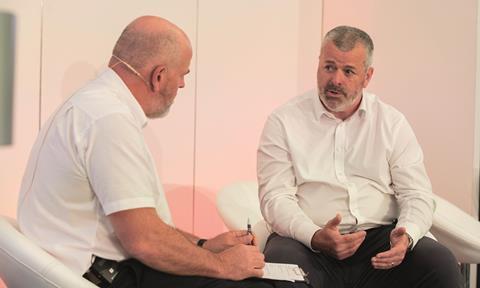In last week’s newsletter, we published the first part of our interview with Zenobē Business Development Director, Ian Dennis. He had so much to say we couldn’t cover it all in our 750-word slot, so we’re going again and turning the spotlight on the thorny issues of residual values, contract terms and Truck-as-a-service. All crucial topics to be understood and resolved as the industry marches on to net zero.

We left the discussion last week talking about the services Zenobē is offering to manage the risk and uncertainty around battery electric vehicles, such as the management of the charging and infrastructure on behalf of clients and the state of health of the battery, liberating the operator to focus on serving the needs of its customers. There’s a whole new suite of financing solutions emerging to support the industry in this area, many being pioneered by Zenobē.
With the substantial price premium on new zero emission vehicles giving many funders indigestion, Zenobē clearly has an appetite for the business and, as mentioned last week, is keen the industry shifts away from its current diesel truck three or five-year asset finance terms.
“It doesn’t really make any sense to do a three-year leasing deal on battery electric vehicles as it’s going to be prohibitively expensive,” Dennis explains. “If we’re looking to compress a £300,000 tractor unit or a £250,000 rigid into a three or five-year period, it’s going to be very challenging and you’re going to need a stonking great big residual value on the vehicle. That will be too risky, even for us.
“Presently, the electric vehicle market is immature, and funders are conservative in their approach to risk management as they lack experience with electric trucks and batteries and therefore residual values. Zenobē is coming from a different perspective, our experience in the bus sector means we are ahead of the curve and we are much more comfortable with longer term financing and battery leasing. We have been able to go to capital markets and secure funding of over £1bn to support our business and decarbonisation of the transport sector.”
Indeed, only last week Zenobe announced another significant chunk of £410 million funding for electric buses. This influx of capital, in addition to its existing £241m EV financing platform established in 2022, will enable the business to support the deployment of over 2,000 electric bus vehicles throughout the UK and Ireland by 2026. This brings the total debt financing secured by Zenobe to over £1 billion since 2019.
“In the bus sector, we are securing deals with a 15-year term,” Dennis continues. “I don’t expect the HGV sector is going to go that far. But if you know the vehicle will meet the duty cycle, is built to last longer and has great driver acceptance, why would you need to replace the vehicle sooner? ”
Longer vehicle contracts and commitments will require a cultural shift in the industry and a greater degree of flexibility from both the fleet operators and the clients where those vehicles are being deployed, which begins to move the industry in the director of “Truck-as-a-Service”, the latest on trend operating model which is banded about when talking zero emission vehicles.
“This is something I think everybody is exploring,” Dennis explains, giving his take on this new development. “There’s various denominations of Truck-as-a-Service, and levels of understanding. It’s something that we’re working on. In an ideal world Truck-as-a-Service is a turnkey solution, where the operator rents the trucks and the charging infrastructure, outsourcing the responsibility for those to another provider. It will be quite a change for operators to move away from ownership to a spot rental type facility.”
Like many in the industry, Dennis recognises the decarbonisation of the sector is likely to bring a profound change in the way companies acquire, manage and operate their vehicles. He’s also keen the industry doesn’t get hung up on the harder to decarbonise areas and miss the opportunities available today to shift to zero emission vehicles.
“Most back-to-base operations are very capable of being electrified,” he contends. “The obsession with electrifying heavy duty tractors is a distraction from being able to progress rapidly with smaller vehicle electrification. There is so much we can do with rigid vehicles up to 19 tonnes and our learnings from the bus sector means we have the knowledge and expertise to deliver fleet operators the solutions right now.”













